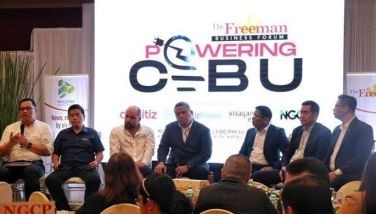DOST aims to boost research and development skills of RP
CEBU, Philippines – The national government, through the Department of Science and Technology (DOST) is intensifying its efforts to boost the research and development (R&D) skills of the Philippines.
The R&D experts from multi-government agencies recently convened in a forum aimed to "harmonize all R&D efforts of various government agencies and come up with a guide or blueprint for the proper use of R&D funds.
In a report released by the DOST, the unofficial tally of experts responses showed that the government R&D activities from 2010 to 2016, focused on and concentrated on areas such as agriculture and food, environment and natural resources, disaster mitigation and management energy (renewable energy technologies, and energy efficiency conservation and management), health and lifestyle related diseases (cancer), manufacturing and production, enabling technologies and ICT for development [ICT applications for different sectors] and citizen participation decision making).
Moreover, R&D effort on Biotechnology and Nanotechnology were also identified as part of the priorities of the pool of R&D experts in the country in the next six years.
Recently, the Office of the President hosted a forum dubbed "National R& D Priorities Delphi Assembly," participated in by R&D experts from Department of Agriculture, Energy, Environment and Natural Resources, Health, National Defense, Education, Trade and Industry and the Foreign Affairs.
The Delphi method is a technique for gathering data, the Delphi group approach generates ideas and facilities consensus among carefully-selected individuals who have special knowledge to share, particularly in analyzing a specific problem.
Delphi is often used in national science and technology forecasting. It also enables the country's science and research experts to come up with scientific basis for good government decision-making and administration. This method gathers experts' ideas in tow or more rounds, with the second round validating the results of the first round.
According to DOST secretary Mario G. Montejo by harmonizing all R&D efforts in the country, the government avoids research duplication, overlapping, and wastage of funds, while saving time and harnessing more creative talents from other R&D projects that could bring about maximum socio-economic advantages for the Filipinos.
"Harmonized programs ensure proper use of public funds to address societal problems, particularly those that directly affect the people like urban congestion, poverty, food shortages, disasters, and disease infections. Moreover, the business sector would realize the usefulness of the government R&D activities to their respective industries," said Montejo.
He said to set the National R&D Priorities Plan 2010 - 2016 (NRDPP) is the first attempt of the national government to bring together the R&D activities of the government departments, agencies, and the academe, particularly SUCs.
Likewise, NRDPP aims to strongly link the government R&D institutions, non-government research/science organizations, and the business sector. Setting up this five year plan for the country's R&D priorities poses a challenge for the DOS, said DOST Undersecretary for S&T Services Fortunato T. de la Peña. (FREEMAN)
- Latest
- Trending

















